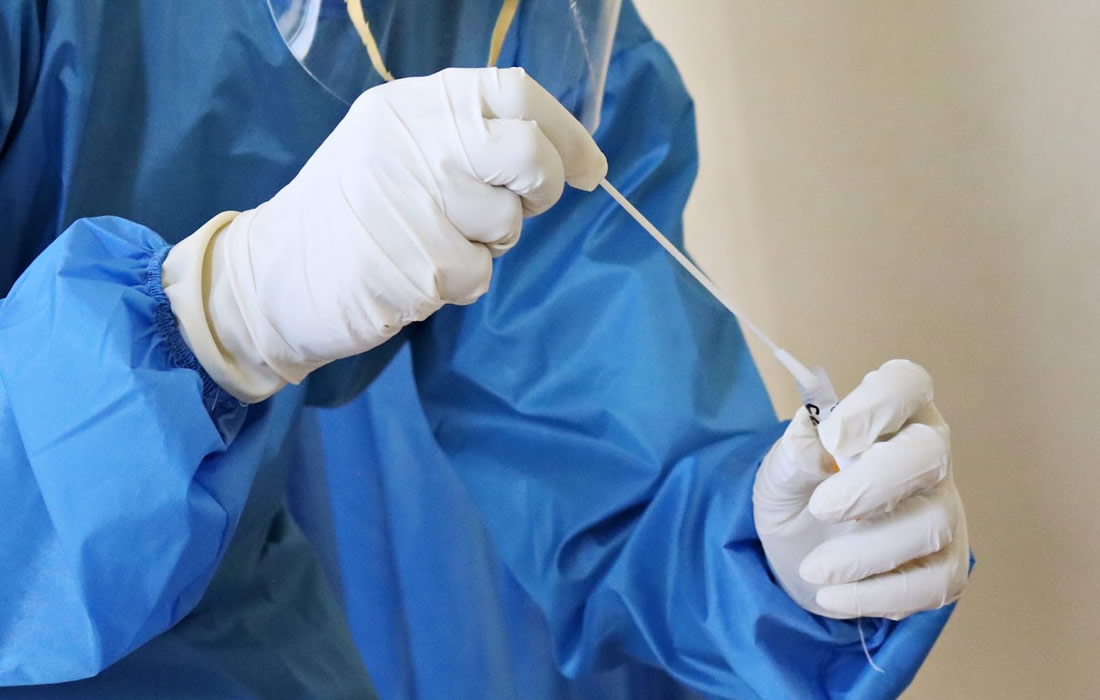COVID-19
Researchers Identify How Steroids Benefit Severe COVID-19 Patients
In the early months of the COVID-19 pandemic, doctors tried a variety of medications to determine what was helpful to prevent the deaths caused by a virus which humans had no natural immunity against.
It was reported that using dexamethasone, a common steroid, prevented deaths in patients who had severe COVID-19 and were on ventilators in the intensive care unit, but it was not known why it helped.
In the summer of 2020, a team of University of Cincinnati researchers led by Ameet Chimote, PhD, from the laboratory of Laura Conforti, began studying the mechanisms of how dexamethasone works to treat COVID-19.
In patients with severe COVID-19, the virus attacks the lungs, triggering a response from the body’s immune cells aimed at eliminating the virus from the body.
“The immune cells congregate in the lungs and secrete proteins called cytokines that try to kill the virus, which in turn also attract other immune cells to strengthen the attack,” said Chimote, lead author on the study and a research scientist in Conforti’s lab.
“What happens during severe COVID-19 infections is that, as a response to high levels of the virus, a whole bunch of immune cells are recruited that secrete a lot of cytokines to kill the virus, but while doing so, they trigger a very bad inflammatory response in the lung, which damages the lung tissue,” he added.
The damaged lung tissue causes the lungs to begin filling up with fluid and the patients start having trouble breathing, which often leads to patients needing supplemental oxygen or to be placed on a ventilator. This process of lung damage caused by an abundance of immune cells and inflammation in the lungs is called a “cytokine storm,” and it remains the main cause for deaths in patients that have severe COVID-19.
“Dexamethasone has since then become a standard of care for any person with severe COVID-19 who is on a ventilator in the ICU,” Chimote said. “Steroids are known to inhibit your immune system, but what are the mechanisms? And why was dexamethasone lifesaving in severely ill COVID-19 patients experiencing cytokine storms? Nobody knew.”
Using samples from patients with mild COVID-19, severe COVID-19 and severely ill patients who had been treated with dexamethasone, the team measured around 700 different genes through RNA analysis.
The research found that dexamethasone specifically inhibited many inflammatory pathways and several critically important genes contributing to the cytokine storm, inflammatory signaling and antiviral responses in immune cells. This could prevent the immune cells from attacking and destroying the patient’s lungs, thus avoiding deaths due to cytokine storm.
“All of the genes that trigger cytokine storm in severe COVID-19 were inhibited by dexamethasone,” Chimote said. “We also saw that dexamethasone inhibited the expression and function of ion channels that regulate immune responses, especially cytokine production.”
“Our findings that dexamethasone may act by inhibiting the ion channels also raises an exciting prospect that drugs that inhibit the function of these ion channels (that are currently in clinical trials in autoimmune diseases) can be used as a treatment modality in severe COVID-19,” added Conforti.
Sources:
Ameet A. Chimote, Abdulaziz O. Alshwimi, Martina Chirra, Vaibhavkumar S. Gawali, Margaret V. Powers-Fletcher, Kristin M. Hudock, Laura Conforti. Immune and ionic mechanisms mediating the effect of dexamethasone in severe COVID-19. Frontiers in Immunology, 2023; 14 DOI: 10.3389/fimmu.2023.1143350
University of Cincinnati. “Researchers identify how steroids benefit severe COVID-19 patients: Study on dexamethasone’s effect on immune cells published.” ScienceDaily. ScienceDaily, 30 March 2023. <www.sciencedaily.com/releases/2023/03/230330102419.htm>.
Images from:
Photo by Mufid Majnun
https://unsplash.com/photos/oI20ehIGNd4

